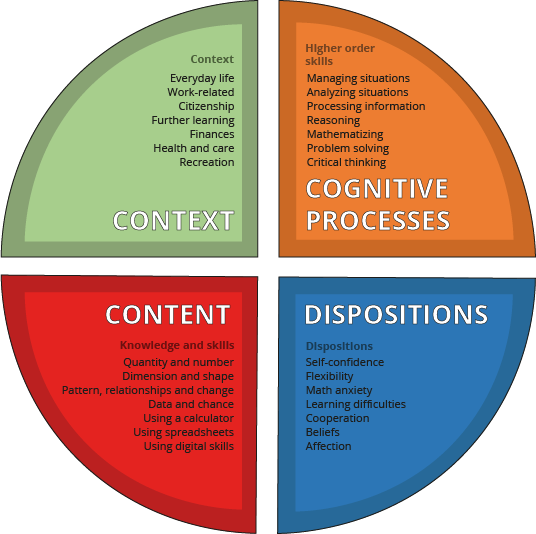PDM - PROBLEM SOLVING
Often, people who stumble upon numeracy problems in their daily lives are concerned with coping with a very concrete life-world situation. Their aim is not to improve their mathematical competences in general, but to find a concrete solution to a specific problem. Typically, a whole mix of situation perception, problem solving techniques, content knowledge and skills, and computational procedures play a role in such a solution.

Lorem ipsum dolor sit amet, consectetur adipiscing elit. Ut elit tellus, luctus nec ullamcorper mattis, pulvinar dapibus leo.
Lorem ipsum dolor sit amet, consectetur adipiscing elit. Ut elit tellus, luctus nec ullamcorper mattis, pulvinar dapibus leo.
Realistic Mathematics Education Short Introduction
Stella Dudzic introduces the teaching ideas behind the Making Sense of Maths materials, developed by MEI and Manchester Metropolitan University (MMU) in this 3 minute long video. This provides some insight and background into the development of the teaching materials, which in turn were developed into the textbook series. Note that the first few seconds refer to GCSE but the rest is generic.
Csapó, B., & Funke, J. (2017). The nature of problem solving. Using research to inspire 21st century learning. https://doi.org/10.1787/9789264273955-en
Mieke van Groenestijn & Lena Lindenskov, eds ( 2007 ) Mathematics in Action. Commonalities across Differences –a Handbook for Teachers in Adult Education ( pp 70)
Schoenfeld, A. H. (2007). Problem solving in the United States, 1970–2008: research and theory, practice and politics. ZDM, 39(5–6), 537–551. https://doi.org/10.1007/s11858-007-0038-z
Jones, I., & Inglis, M. (2015). The problem of assessing problem solving: can comparative judgement help? Educational Studies in Mathematics, 89(3), 337–355. https://doi.org/10.1007/s10649-015-9607-1
OECD. (2012). PISA 2012 Results : Creative Problem Solving: Vol. V.
J. Rogers (2007): Adult Learning. Problem based learning, Coaching S. 160 – 197
https://books.google.at/books?hl=de&lr=&id=3FZb60SRMHEC&oi=fnd&pg=PP1&dq=Problem+based+coaching+adults&ots=FjGjvqPJ1i&sig=Cdze1Y8c1rNM_4yPQ6sSFxqLp4I#v=onepage&q=Problem%20based%20coaching%20adults&f=false
Problem-based learning: Reflective coaching for teacher educators. C Basile, F Olson, S Nathenson-MejL´ a – Reflective Practice, 2003 – Taylor & Francis
Kaiser, H. (2011). Vorbereiten auf das Prozentrechnen im Beruf. Praxis der Mathematik in der Schule, 53(41), 37-44.
Marja Van den Heuvel-Panhuizen and Paul Drijvers (2014): Realistic Mathematics Education; Freudenthal Institute for Science and Mathematics Education, Faculty of Science & Faculty of Social and Behavioural Sciences, Utrecht University, Utrecht, The Netherlands
https://www.icrme.net/uploads/1/0/9/8/109819470/rme_encyclopaediamathed.pdf
